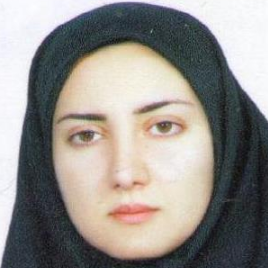
Keihaneh Kia
Work place: Department of computer Engineering and Information Technology, Razi University, Kermanshah, Iran
E-mail: kiya.keyhaneh@stu.razi.ac.ir
Website:
Research Interests: Computational Engineering
Biography
Keihaneh Kia received the B.Sc. degree (with highest honors) from Shahid Bahonar University of Kerman, Kerman, Iran, in 2007, and the M.Sc. degree from Islamic Azad University (IAU), Science and Research Branch, Tehran, Iran, in 2010, both in computer engineering. She is currently working toward the Ph.D. degree in computer architecture with the Department of Computer Engineering, Razi University. Her research interests include network on chip, reliability and energy efficiency in computer systems.
Author Articles
A Centralized Controller as an Approach in Designing NoC
By Abdolhossein Fathi Keihaneh Kia
DOI: https://doi.org/10.5815/ijmecs.2017.01.07, Pub. Date: 8 Jan. 2017
This paper presents a new NoC architecture to improve flexibility and area consumption using a centralized controller. The idea behind this paper is improving SDN concept in NoC. The NoC routers are replaced with small switches and a centralized controller doing the routing algorithm and making control decisions. As one of the main desirable property of NoC is flexibility, in this work with the help of centralized controller, having different topologies and also having two separate networks in a single platform is possible. The other effects of this new scheme are power and area consumption which are investigated. Performance of the NoC is also studied with an analytical model and compared with the traditional NoC. The proposed NoC is implemented in VHDL, simulated and tested with ISE Xilinx.
[...] Read more.Effective Reverse Converter for General Three Moduli Set{(2^n)-1,(2^n)+1,(2^(pn+1))-1}
By Mehdi Hosseinzadeh Keihaneh Kia
DOI: https://doi.org/10.5815/ijigsp.2012.09.06, Pub. Date: 8 Sep. 2012
Residue number system is a non¬-weighted integer number system which uses the residues of division of ordinary numbers by some modules for representing that ordinary numbers. In this paper, the general three moduli set {(2^n)-1,(2^n)+1,(2^(pn+1))-1} based on CRT algorithm is proposed in which “p” is an even number greater than zero. The special case of this set for p=2 which is {(2^n)-1,(2^n)+1,(2^(pn+1))-1} is also described in this paper. Since the dynamic range of this set is odd, some difficult problems in RNS can be easily solved based on this set using parity checking. The proposed reverse converter is better in speed and hardware in comparison to reverse converters in similar dynamic range. Moreover, from the complexity point of view, the internal arithmetic circuits of this moduli set is improved and is less complex than the other sets in similar dynamic range.
[...] Read more.Other Articles
Subscribe to receive issue release notifications and newsletters from MECS Press journals